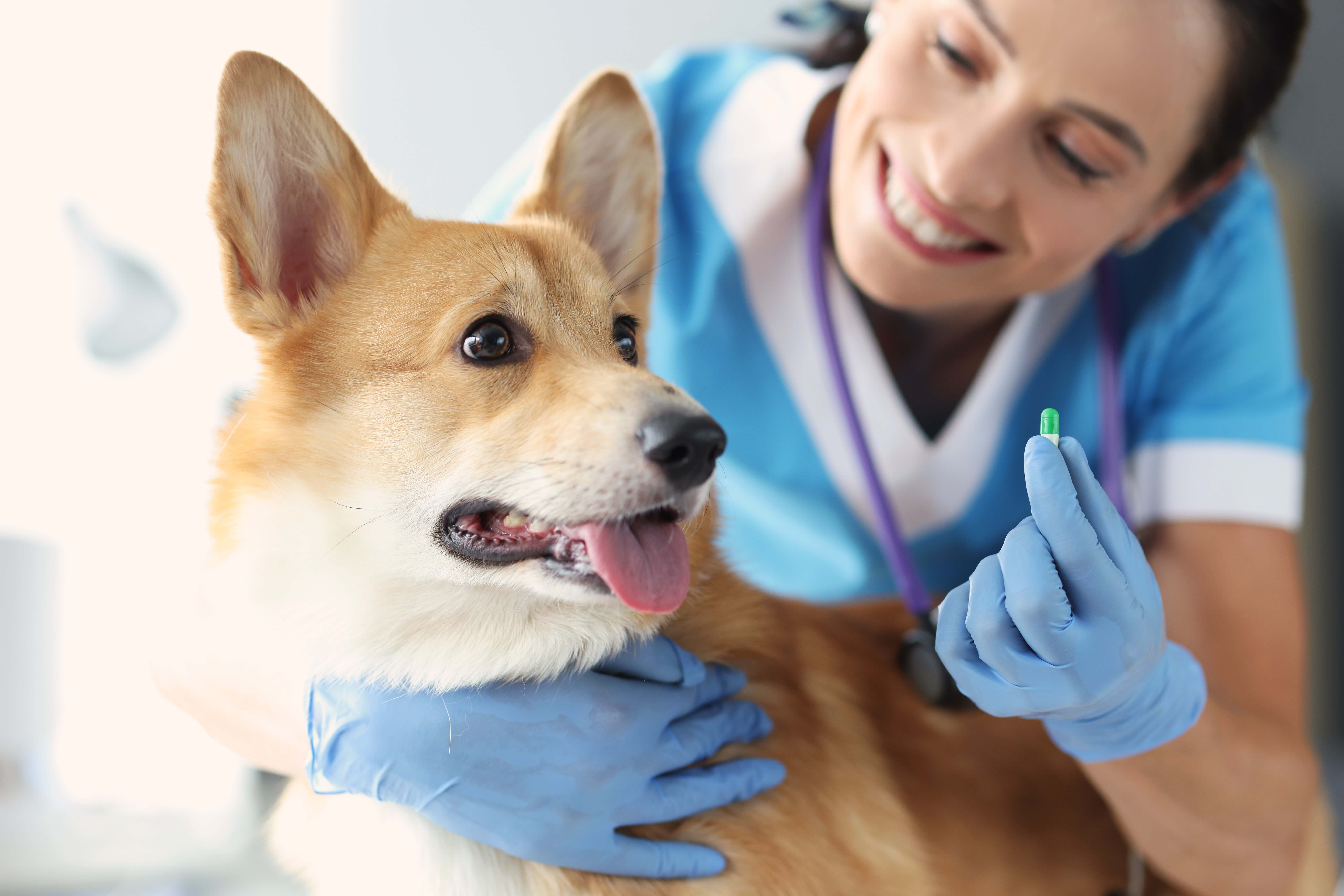Does your dog get nervous when they go to the vet?
Many dogs get nervous about visiting the vet clinic. There are strange smells and sounds. The thought of uncomfortable pokes and prods can make any dog stressed about visits to the vet too. Unfortunately, once dogs start becoming nervous about clinic visits this can cause a cycle of escalating stress for future visits.
Tips for making vet clinic visits less stressful for your dog:
- When possible, schedule appointments so that you can walk or exercise your dog prior to the appointment. Physical activity can help make dogs feel calmer and more relaxed.
- Avoid feeding your dog a meal prior to the visit. Your dog will be more receptive to the veterinarian and staff using treats to help calm or distract your dog during the visit. Bring treats or food from home if your dog has special dietary needs or your dog has a particularly irresistible treat they like.
- Dogs are intuitive and can pick up on their owner’s stress and anxiety, try to stay calm and confident before and during the visit. Take deep breaths and move slowly.
- Practice exams at home. Let’s face it, most strangers don’t start handling your dog’s feet, face and ears when they meet your dog. Always start slow, practice sessions should be short and gentle; look at your dog’s teeth, eyes and ears, gently handle their feet. Be sure to give them lots of praise and treats as you go! Get family members and trusted friends involved, the more people your dog tolerates handling them, the better.
- Calming aids may be necessary for some dogs. These include: calming collars, calming sprays or chews, anxiety shirts/wraps, herbal supplements or other products that will help relax your dog.
- Anti-anxiety medications may be a good option for some dogs. These medications can help break the cycle for dogs that are becoming increasingly stressed for visits to the vet clinic. It is important to follow your veterinarian’s instructions when giving these medications. Anti-anxiety medication and continuing to work on training and desensitization with your dog may even eliminate the need for medication.
- If you are new to a clinic, alert the staff that your dog becomes anxious at vet clinic visits and let them know what has worked or not worked for your dog.
- Finally, if your dog is truly too anxious to handle a visit to the veterinary clinic, consider looking for a vet that makes house calls. Again, it is still important to work on socialization and training for home vet visits. Some vets that make house calls will offer an introductory social visit to help make a positive first impression.
It is important for dogs to be comfortable with visits to the vet clinic and we like to offer as much help as we can to make this happen.

